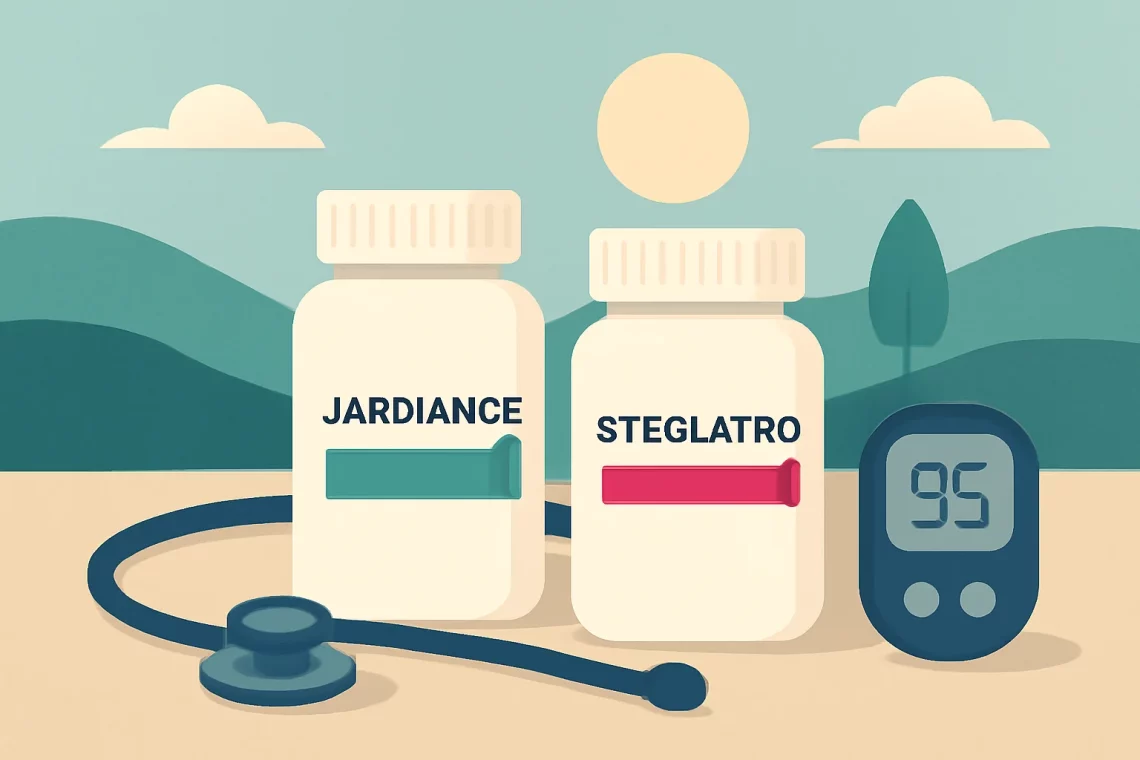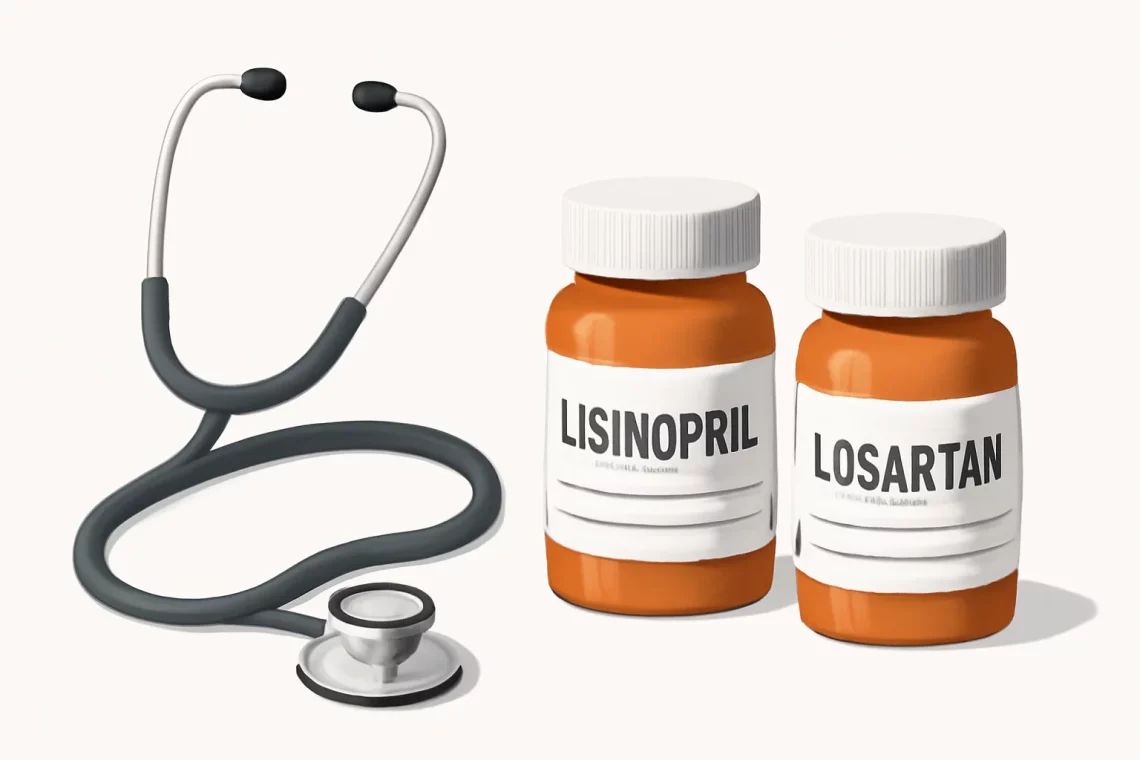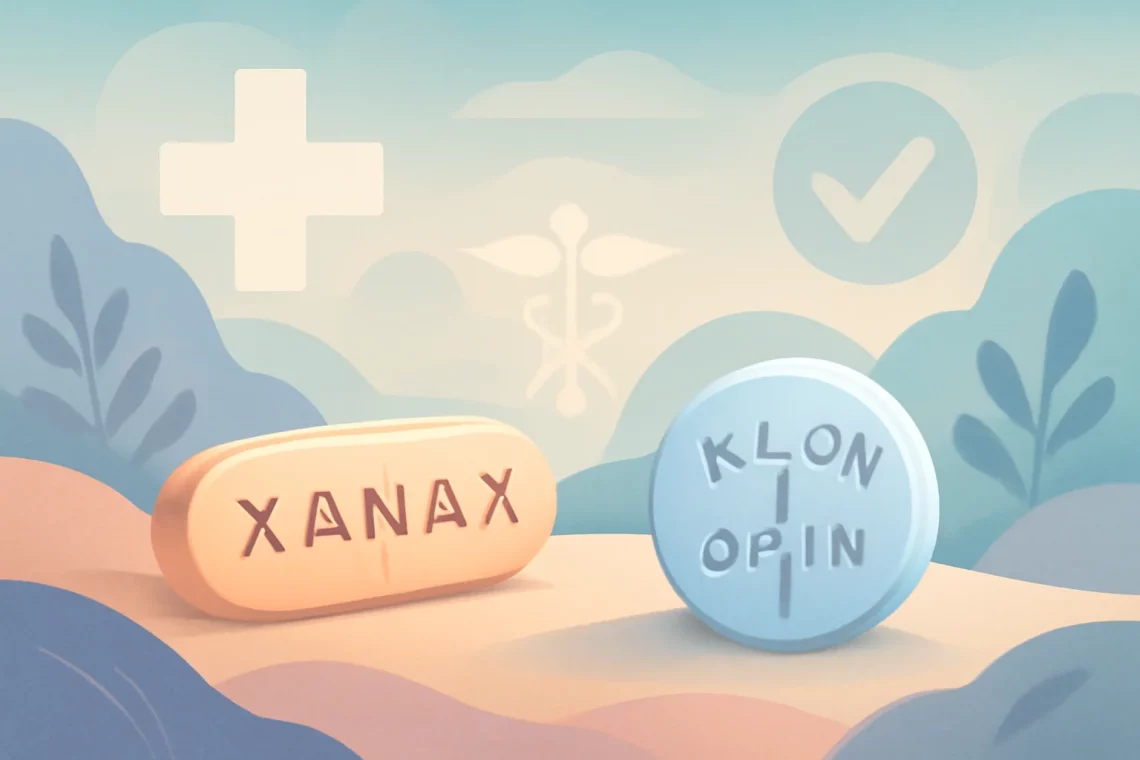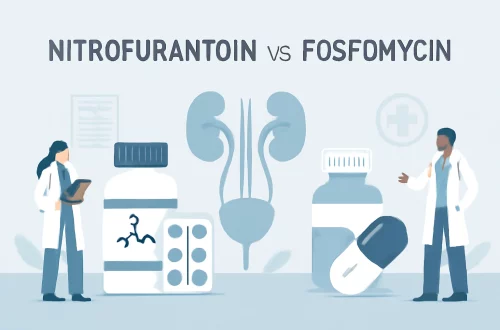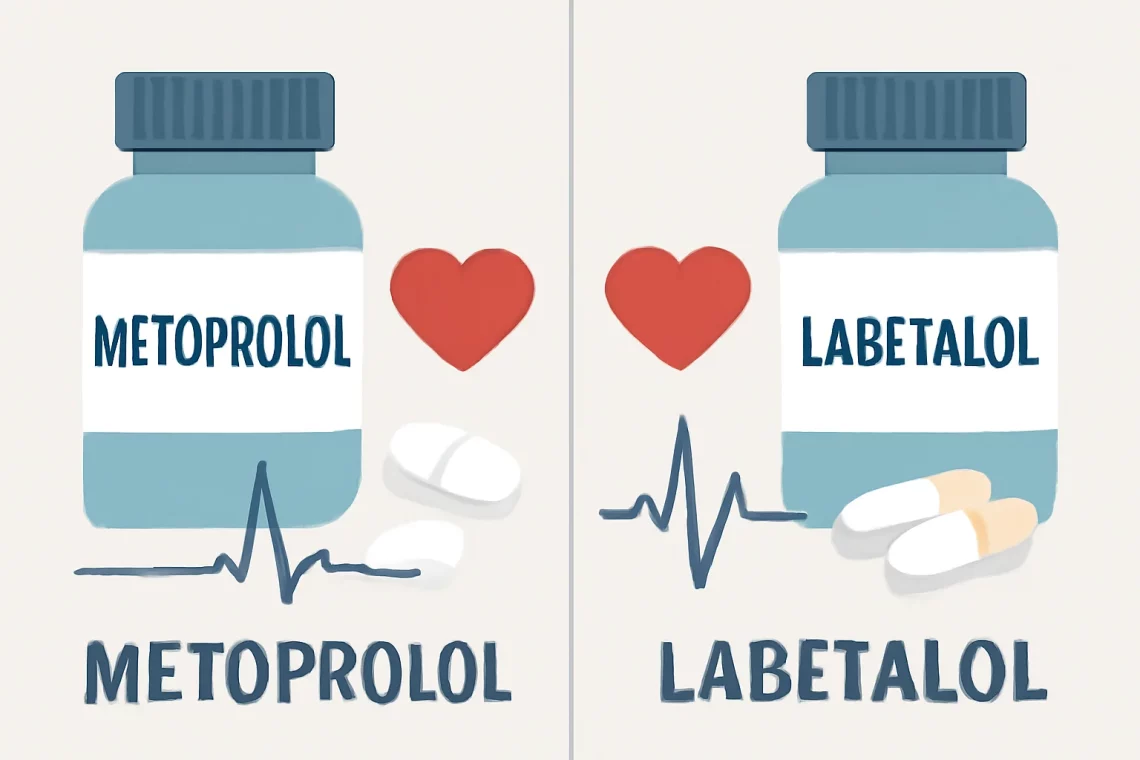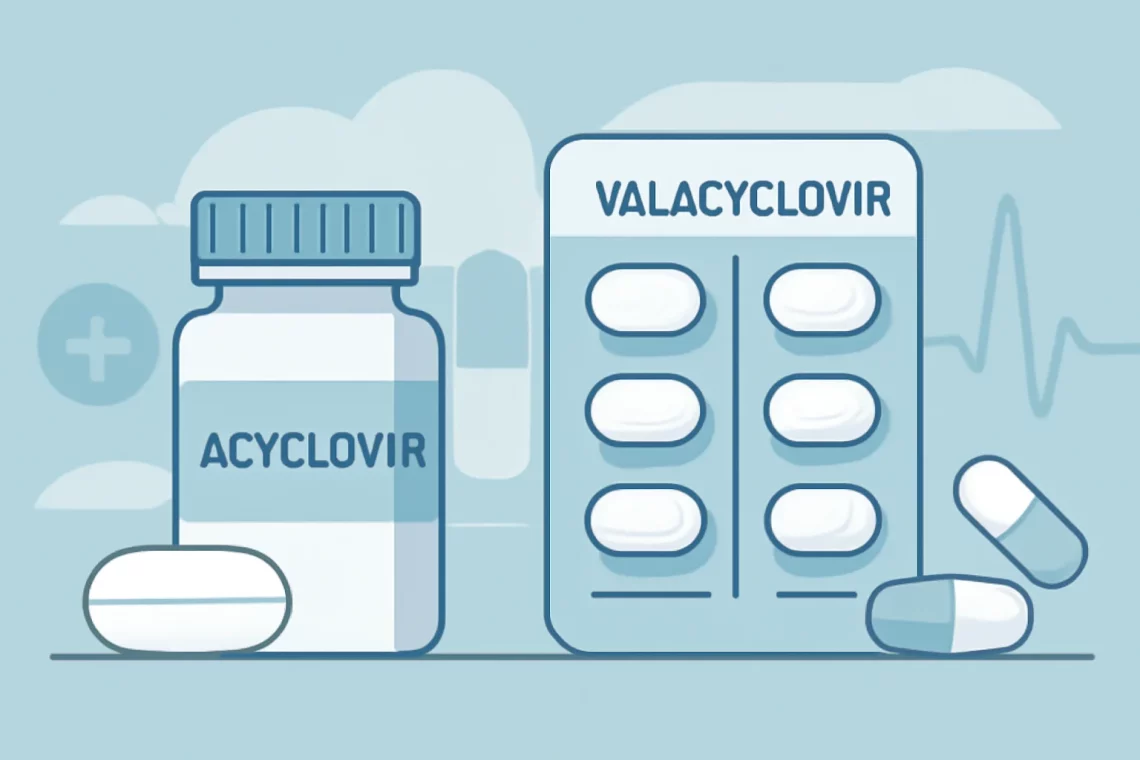Health
-
Wellbutrin vs Zoloft: Choosing the Right Antidepressant for You
Depression and anxiety are increasingly common mental health issues affecting millions of people worldwide. As awareness of these conditions grows, so does the search for effective treatments. Among the various options available, two medications often discussed are Wellbutrin and Zoloft. Both are prescribed to help manage depression, but they work in different ways and have distinct profiles in terms of side effects, effectiveness, and mechanisms of action. Wellbutrin, known generically as bupropion, is an atypical antidepressant that primarily affects the neurotransmitters dopamine and norepinephrine. It is often chosen for patients who struggle with fatigue and low motivation, as it can help boost energy levels and improve mood without the weight…
-
Metformin vs Tradjenta: Which Diabetes Medication is Right for You?
Metformin and Tradjenta are two medications commonly used in the management of type 2 diabetes. Each serves a unique purpose and has a distinct mechanism of action, making them valuable tools in the treatment landscape for those managing blood sugar levels. Metformin, a biguanide, has been a staple in diabetes management for many years, primarily known for its effectiveness in lowering glucose production in the liver and improving insulin sensitivity. On the other hand, Tradjenta, or linagliptin, belongs to a newer class of diabetes medications known as DPP-4 inhibitors, which help increase insulin levels after meals and decrease the amount of glucose produced by the liver. As the prevalence of…
-
Jardiance vs Steglatro: Which Diabetes Medication is Right for You?
Jardiance and Steglatro are two medications that belong to the class of drugs known as SGLT2 inhibitors, which are primarily used to manage type 2 diabetes. As the prevalence of diabetes continues to rise globally, the importance of understanding various treatment options becomes increasingly significant. Both Jardiance (empagliflozin) and Steglatro (ertugliflozin) offer unique benefits and potential side effects that can influence a patient’s choice of treatment. The mechanism of action for these medications revolves around helping the kidneys eliminate excess glucose through urine, thus lowering blood sugar levels. Patient experience, efficacy, and safety profiles are key considerations when evaluating these medications. With the growing emphasis on personalized medicine, understanding how…
-
Lisinopril vs Losartan: Choosing the Right Medication for You
High blood pressure, also known as hypertension, is a prevalent health issue affecting millions of people worldwide. It often goes unnoticed, earning it the title of a “silent killer.” If left untreated, high blood pressure can lead to severe complications, including heart disease, stroke, and kidney failure. To combat this condition, healthcare professionals often prescribe medications that help regulate blood pressure levels. Among these medications, Lisinopril and Losartan are two commonly used drugs that belong to different classes but serve similar purposes. Lisinopril is an angiotensin-converting enzyme (ACE) inhibitor, whereas Losartan is classified as an angiotensin II receptor blocker (ARB). Despite their different mechanisms of action, both medications effectively lower…
-
Xanax vs Klonopin: Understanding the Differences and Uses
Xanax and Klonopin are both medications that belong to a class known as benzodiazepines, widely prescribed for the management of anxiety disorders and certain other mental health conditions. The increasing prevalence of anxiety-related issues in today’s fast-paced world has led to a greater reliance on these medications. While both Xanax and Klonopin are effective in alleviating anxiety symptoms, they differ in their chemical composition, duration of action, and specific uses. Understanding these differences is crucial for patients and healthcare providers alike, as it can significantly influence treatment decisions and outcomes. Benzodiazepines work by enhancing the effects of a neurotransmitter called gamma-aminobutyric acid (GABA) in the brain, which leads to calming…
-
Metoprolol vs Labetalol: Key Differences and Clinical Uses Explained
Metoprolol and labetalol are both beta-blockers, a class of medications widely used in the management of cardiovascular conditions. These drugs work by blocking the effects of adrenaline on the beta receptors in the heart, leading to reduced heart rate and blood pressure. While both medications serve similar purposes, they differ in their pharmacological profiles, indications, side effects, and mechanisms of action. Understanding these differences is crucial for healthcare providers and patients alike, as it can significantly impact treatment outcomes. Metoprolol is often prescribed for conditions such as hypertension, angina, and heart failure, while labetalol is frequently used for managing high blood pressure, particularly in acute settings. The choice between these…
-
Cyclobenzaprine vs Flexeril: Understanding the Differences and Uses
Cyclobenzaprine and Flexeril are terms that often arise in discussions about muscle relaxants used to alleviate discomfort from muscle spasms and pain. While many people may use these terms interchangeably, it’s essential to understand that they refer to the same medication. Cyclobenzaprine is the generic name, while Flexeril is the brand name under which it is marketed. This medication is widely prescribed to help manage acute musculoskeletal conditions, providing relief by acting on the central nervous system. Muscle pain can significantly impact an individual’s quality of life, leading to discomfort and limiting mobility. As a result, the demand for effective treatments continues to grow. Cyclobenzaprine works by interfering with the…
-
Ciprofloxacin vs Levaquin: Understanding Their Differences and Uses
Ciprofloxacin and Levaquin are two widely used antibiotics, both belonging to the fluoroquinolone class of medications. These drugs are often prescribed to treat bacterial infections, ranging from urinary tract infections to respiratory conditions. Despite their similarities, each medication has its own unique characteristics, indications, and potential side effects. Understanding the differences and applications of Ciprofloxacin and Levaquin can help patients and healthcare providers make informed decisions about treatment options. While both medications target bacterial infections, they may vary in effectiveness depending on the type of bacteria involved and the severity of the infection. Furthermore, the choice between these antibiotics may also depend on the patient’s medical history, potential drug interactions,…
-
Acyclovir vs Valacyclovir: Which is the Better Choice for Treatment?
Acyclovir and valacyclovir are two antiviral medications commonly used to treat infections caused by certain types of viruses. Both drugs are primarily prescribed for conditions related to the herpes virus, which can manifest in various forms, including genital herpes, shingles, and cold sores. The importance of understanding the differences and similarities between these two medications cannot be overstated, as they play a crucial role in managing viral infections effectively. Acyclovir has been a staple in antiviral therapy for several decades, while valacyclovir, a prodrug of acyclovir, has gained popularity due to its improved pharmacokinetics. This means that valacyclovir is converted into acyclovir in the body, allowing for better absorption and…
-
Trazodone vs Ambien: Which Sleep Aid Is Right for You?
Sleep disorders have become increasingly prevalent in today’s fast-paced world, where stress and anxiety often interfere with a good night’s rest. As individuals seek solutions to their sleep-related issues, various medications have emerged as popular treatments. Among these, Trazodone and Ambien are two commonly prescribed options, each with distinct mechanisms and applications. Understanding the differences between these medications is crucial for those considering them as part of their sleep management strategy. Both Trazodone and Ambien have gained recognition for their effectiveness in promoting sleep, yet they operate in unique ways and cater to different patient needs. Trazodone, originally developed as an antidepressant, has been found to have sedative properties that…








